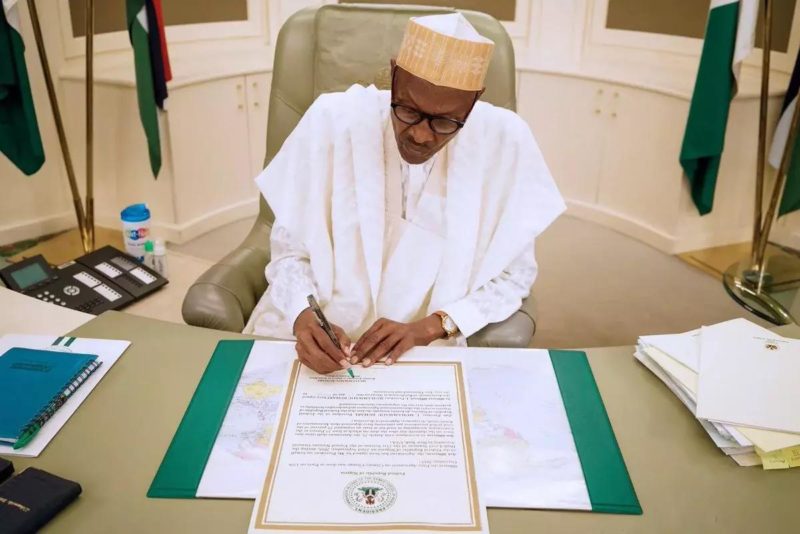President Muhammadu Buhari of Nigeria has said that the the Light Rail System, which is under construction, will reduce traffic congestion and carbon emission in line with the administration’s policy on climate change.

The president, who made the submission on Monday, January 1, 2018 in his New Year address to the nation, disclosed that the train service would stimulate economic activities in Abuja, the Federal Capital City, and provide residents with an efficient and safe transportation system. According to him, 12 railway sub-stations around the capital over a 45.2 kilometre route will serve as a catalyst and a pull factor to the economy of the area.
Nigeria appears to be quite active in terms of international climate change and sustainable development diplomacy. Upon submitting Intended Nationally Determined Contributions to the United Nations Framework Convention on Climate Change (UNFCCC), the nation appended its signature to the Paris Agreement on September 22, 2016, and thereafter ratified the global accord on May 16, 2017.
Recently, the country officially issued the Sovereign Green Bond, apparently as an innovative and alternative source of projects funding that would help to reduce emissions and provide robust climate infrastructure. Such infrastructure include renewable energy, low carbon transport, water infrastructure and sustainable agriculture in line with the Paris Agreement.
The Abuja Capital Light Rail, said Mr President, has reached 98% completion, and that only test runs remain before start of operations.
But a larger, all encompassing scheme entails the Lagos-Kano Standard Gauge Railway, in respect of which construction work has already begun.
According to the president, the line should reach Ibadan from Lagos by the end of 2019 and will carry two million passengers per year and five million tons of cargo will be transported every year, giving a substantial boost to the country’s economy.
Construction of the Kano-Kaduna, he noted, segment would commence this year and reach Kaduna by the end of 2019. He stressed that, by the end of 2021, the two ends will be joined to form a standard gauge railway across the main North-South trading route.
The Abuja-Kaduna route will be boosted by additional rolling stock next Thursday and will be able to handle one million commuters annually, he announced.
His words: “At the same time I have approved and negotiations will be concluded in the first part of this year for the Port Harcourt to Maiduguri line covering Aba, Owerri, Umuahia, Enugu, Awka, Abakaliki, Makurdi, Lafia, Jos, Bauchi, Gombe, Yola and Damaturu. The Abuja to Itakpe line will go through Baro and terminate in Warri with construction of a new seaport at Warri.
“Negotiations are also advanced for the construction of other railway lines, firstly from Kano to Maradi in Niger Republic passing through Kazaure, Daura, Katsina, Jibia to Maradi. And secondly, Lagos to Calabar the ‘Coastal Rail’ through Ore, Benin, Agbor, Asaba, Onitsha, Sapele, Ughelli, Warri, Yenagoa, Otuoke, Port Harcourt, Aba, Uyo and Calabar. In the next few years, all these Nigerian cities will be linked by functional modern rail systems, giving enormous boost to the social and economic life of our people.”
At the “One Planet Summit” held recently in Paris, France to mark the two-year anniversary of the Paris Agreement, President Buhari appealed to the international community to support Nigeria’s commitment to reducing the negative effects of climate change.
He told participants that Nigeria could not implement its Nationally Determined Contributions (NDCs) without adequate financial, technical and capacity building support from developed countries.
He added that “since the adoption of the Paris Agreement, we have been strengthening our national efforts toward implementing the accord and the Marrakech Call for Action.”
He said that the country’s NDCs to reduce emission by 20 per cent by 2020 and 40 per cent by 2030 could not be attained alone.
According to him, the country is not under illusion of the challenges it is facing, having just come out of recession.
By Michael Simire
